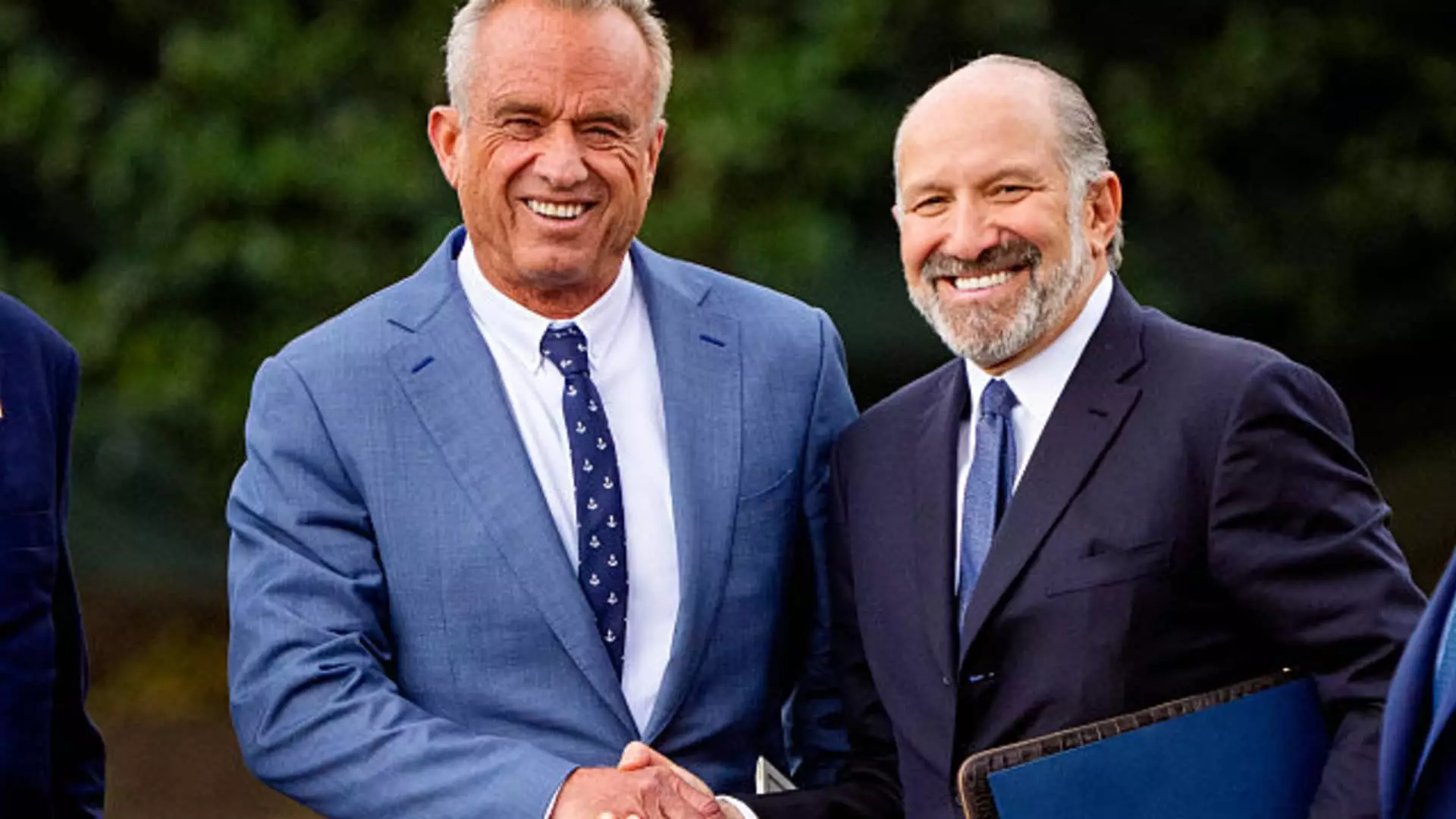The appointment of Robert F. Kennedy Jr. as Health and Human Services Secretary raises many red flags, particularly for those who value scientific integrity and public health. Kennedy’s well-documented skepticism of vaccines contradicts the very foundation upon which this department operates: the protection of American citizens from preventable diseases. It is bewildering that an anti-vaccine advocate, coupled with his history of endorsing unproven treatments, is allowed to influence health policies at the highest level. Credibility is critical in public health, and placing someone with a dubious reputation in such a position only deepens the chasm of mistrust that already exists in our healthcare system.
The Consequences of Misguided Activism
Recent events within the FDA have shown the fallout of having a leader like Kennedy at the helm of HHS. The resignation of Peter Marks, the head of the FDA’s biologics division, serves as a stark reminder of the tensions rising within federal health agencies. Marks’s departure was not merely a loss of personnel but a protest against the anti-science agenda that threatens to weaken the very safeguards intended to protect public health. When qualified experts feel compelled to resign rather than align with misinformation, it highlights the real risks posed by placing someone with Kennedy’s perspectives in such a vital role. Health policy cannot afford to be swayed by unscientific beliefs; lives are at stake.
Vaccination: A Critical Public Health Tool
Vaccines are one of the most effective tools in preventing infectious diseases. A growing anti-vaccine movement, emboldened by leaders like Kennedy, has already put many communities at risk by deterring routine immunizations. The irony lies in how the public’s trust in vaccines, painstakingly built over decades, can be shattered by the influence of a single individual who favors conspiracy over science. Statements that belittle the importance of vaccines, such as those regarding the measles, mumps, and rubella (MMR) vaccine, should be considered a public health emergency. Advocating for alternatives based on misinformation poses a significant threat to community health and safety.
The Dangers of Misinformation
The current leadership crisis highlights broader societal issues surrounding misinformation in healthcare. Recently, the Centers for Disease Control and Prevention (CDC) has undertaken the task of looking into discredited theories linking vaccines and autism, despite ample scientific evidence debunking this myth. Such moves not only waste valuable resources but also lend credibility to unsubstantiated fears. The promotion of these outdated and scientifically disproven ideas by a key figure in government positions could validate similar sentiments among the public, causing further damage to the trustworthiness of health initiatives. As amusing as Kennedy’s tendency to promote alternative remedies may seem, the consequences can be deadly. When edicts on health are rooted in pseudoscience, they inevitably lead to tragedy.
Financial Ramifications as Reflections of Public Concern
The financial markets have not responded lightly to the instability ushered in by Marks’s resignation. Shares in key vaccine manufacturers like Moderna and Novavax have plummeted, reflecting the palpable fear investors have regarding the health landscape under Kennedy’s potential influence. This decline is indicative of more than just stock prices; it signals a broader concern regarding the future of public health initiatives. The financial community understands that a deteriorating trust in vaccines translates into lower vaccination rates, which can lead to outbreaks of diseases once thought to be eradicated. This connection between public confidence in health policies and market stability is a wake-up call for those in power and the citizens they serve.
A Call for Renewed Vigilance
The matter at hand is not solely about RFK Jr. or his qualifications; it is about the ideology he represents and its potential to undermine public health. The administration cannot afford to overlook the implications his leadership could have on health policies that protect citizens. It’s time for the public to demand accountability and for leaders to reevaluate the personnel decisions that impact the health of millions. Ignoring this alarm sounds a frightening future not just for public health, but for the credibility of the institutions meant to safeguard them.

